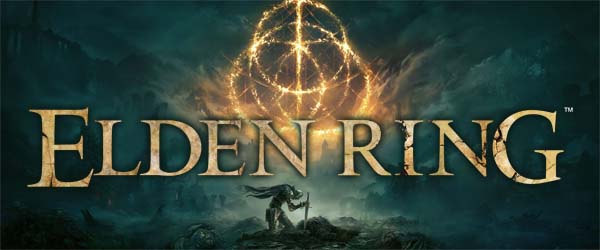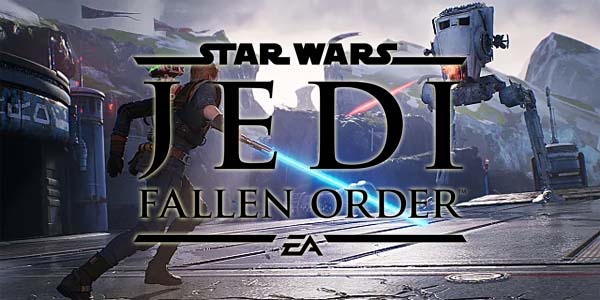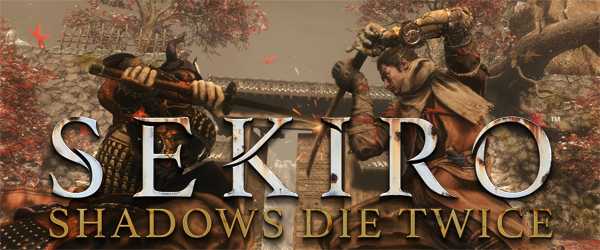At the top of my list of favorite game franchises, sits 2 seemingly unlikely companions: one is the first 4 Silent Hill games developed by Konami's internal "Team Silent" studio; the other is the series of "Souls-Borne" games created by From Software. If these 2 franchises are not my number 1 and number 2, respectively, then they are both definitely in my top 3, with Sid Meier's Civilization being the only other real contender.
On the surface, Silent Hill and the Souls-Borne games don't seem to have a lot in common, nor would one necessarily think that they would appeal to overlapping audiences. In some senses, it would seem that they couldn't be further apart. Silent Hill is a series of slow-paced psychological horror games with linear narratives, that emphasize puzzles and encourage the player to run away from threats and avoid the games' poorly-developed combat mechanics. The Souls-Borne games are frenetic action-RPGs that barely have any plot at all, and which are built entirely around combat mechanics, and which are infamous for their difficult gameplay. But despite the radically divergent styles of gameplay that these 2 franchise offer, they both contain similar themes and are open to similar artistic interpretations, which appeal to me, personally because of a particular aspect of my core beliefs and identity.
You see, I'm an atheist. More specifically, I consider myself to be a "strong atheist", "anti-theist", and "secular humanist", among other labels. Not only do I not accept any of the various god-claims due to insufficient evidence; I also positively believe and assert, with confidence, that there are no gods at all. Now, I'm sure that I've just invited a slew of commenters who will try to convert me or share their beliefs for why their personal god is real, but I'm not here to argue about the theology. Besides, I've pretty much heard it all. Not just on the internet, but also from extended family. God of the gaps, personal incredulity, watch-maker, Pascal's Wager, Kalam and other various Cosmological Arguments. I've heard it all -- or at least most of it. And I reject it all.
I am as confident in my belief that there is no god, as I am in my belief that there is no Santa Clause (and for many of the same reasons). So unless you think you can convince me that Santa Clause is real, you're probably wasting your time trying to convince me about your god.
View this entire essay in video format on YouTube.
But my atheism goes a bit further. I'm also an anti-theist, and I believe that religion and religious institutions are also dangerous and do more harm to society than good.
And based on my own personal reading of both Silent Hill and the Souls-Bornes, it seems that both game franchises kind of agree with me. [More]
e41c0e7e-50b9-4d3d-ad3d-eedbb712815d|10|2.1
Tags:atheism, religion, god, faith, Silent Hill, From Software, Demon's Souls, Dark Souls, Bloodborne, Elden Ring, Star Trek, original sin, Christianity, Judaism, curse, Way of White, Healing Church, blood ministration, orphanage, cult, abortion

Elden Ring is winning "Game of the Year" awards left and right. Critics and players are almost unanimously praising From Software for successfully adapting its Dark Souls design into an open world in its latest release. And I have to say, it is, indeed, one of the better open worlds that I've seen.
But you know what? I always kind of considered Dark Souls to be an "open world" game in all the ways that matter. I even brought it up as an example in previous video essays about open worlds. So as far as I'm concerned, Elden Ring isn't really doing a whole lot that the original Dark Souls wasn't already doing. Elden Ring just does more of it and is less subtle in its approach.
This entire essay is available in video format on YouTube.
Why do I consider Dark Souls to be a practical open world? Well, first and foremost, most of the world of Dark Souls is seamlessly connected. Almost every landmark that you can see in the distance is a place that you can (and probably will) actually go. This is also largely true of FromSoft's other games, including Bloodborne and Sekiro. The first 2 Dark Souls games, as well as Demon's Souls are also open to a lot of significant sequence-breaking, allowing players the option to handle levels out of order, or to skip entire levels altogether.
Dark Souls most dramatically diverges from a more traditional open world (like Skyrim) by wrapping its world in a vertical helix, rather than stretching it out over a flat plane. From Firelinek Shrine to the depths of Lost Izalith and Ash Lake, to the heights of Anor Londo and the Duke's Archives, Lordran is an almost completely contiguous place. But despite the narrower confines of the game's levels, there is still a sense of awe and wonder to exploring the depths of a level, only to eventually circle back to someplace familiar and slowly realize that everything in the world fits in place. It's all functional, and the relative arrangements of game levels helps to tell the story of how Lordran's world worked, and how it eventually collapsed. And now that Elden Ring has come along with a more traditional open world, it kind of proves something that I subconsciously knew all along: From Software's particular approach to story-telling is actually perfectly suited to an open world design.
Oh, and before I go on, I want to provide a minor spoiler warning for Elden Ring, and pretty much all of From Software's catalogue back to and including Demon's Souls. I will be talking about how these games deliver their narratives, which will involve talking a bit about the overall narrative structure and some thematic elements that these games all have in common. I will provide a warning for any explicit story spoilers, so that you can skip those. But if you want to go into any of these games completely fresh, then I recommend you play them first, then come back to this video.
Dark Souls's world is wrapped around a vertical helix, instead of spread across a flat plane. [More]
I recently posted a new video to my YouTube channel about my frustrations with the design of Control's "challenging" gameplay. I'm not going to transcribe the entire video here on the blog because most of what is in the video is already in my previous written review of the game.
In summary, the video compares the "tough but fair" design philosophy of From Software's games (most notably, Dark Souls) with the way that difficulty is implemented in Control. Even though I found Control to be a much easier game overall, and I suffered far fewer deaths in Control compared to Dark Souls, I did feel that Control lacked that "tough but fair" feeling that Dark Souls is famous for. Control uses a lot of seemingly cheap tricks to artificially inflate the difficulty of the game. If deliberate, then they are cheap tricks. If not deliberate, then they are faulty game design. I may not have died as often in Control, but the few deaths that I did suffer rarely felt deserved.
The full critique is available on YouTube.
The video also contrasts Control's healing system with that of Doom (2016) and Bloodborne. All three games seem to be trying to encourage fast-paced, aggressive play by rewarding the player with health for relentlessly assailing the enemy. Yet this intent doesn't come through as clearly in Control because the player needs to be close to where the enemy dies in order to pick up the health, but most of Control's action is done at medium or long range. Doom and Bloodborne, however, give health to the player when the player performs melee attacks, ensuring that even if the health is dropped on the ground as a pickup, that the player is always close enough to immediately get it if they need it.
One thing that I neglected to mention in the actual video, but which I want to add here, is that Control also has enemies with hit-scan weapons. Most enemies have machine guns that instantly damage the player if the enemy has line of sight. Attacks are not always projectiles that travel across the arena and which can be dodged, blocked, or otherwise avoided. This means that exposing yourself to crossfire is almost certain death if your health is critical in Control, and it contributes to the player needing to slow things down and play cautiously and defensively, instead of maintaining that fast-paced, aggressive play. [More]

Jedi Fallen Order advertised itself as "Star Wars Dark Souls". In reality though, Fallen Order pulls its inspirations from a hodgepodge of popular gaming trends. Sure, it's borrows a lot from From Software's playbook, but there's also a lot of Uncharted / Prince of Persia, Tomb Raider, "Metroid-vania", Mass Effect, and even a little bit of Breath of the Wild in here too. In fact, I'd even say that it would be more apt to compare Jedi Fallen Order to Sekiro rather than to Dark Souls.
Fallen Order competently executes on all the concepts that it borrows from other games, but it doesn't really do much to separate itself (let alone elevate itself) from those other games, aside from applying the coat of Star Wars paint. The lightsaber play is good, but not nearly as clean as I'd like it to be. The platforming is mostly just an over-complicated way of getting from point A to point B. The RPG-elements are shallow. The puzzles aren't particularly taxing, and mostly just come down to whether or not you notice all the things in the chamber that you're supposed to interact with. And the narrative and characters are passable, but nothing to write home about.
Concepts are borrowed liberally from Dark Souls, Uncharted, Mass Effect, Breath of the Wild, and more.
Pick your poison
It's a good thing, then, that Fallen Order isn't nearly as demanding as Dark Souls or Sekiro. If it had been, then the lack of polish and creativity would have undoubtedly turned me off of the game entirely. And if those didn't kill the game for me, the long load times would. Remember how awful Bloodborne was at launch? Dying every few minutes, and then sitting through a minute or more of load times. Fallen Order is about that bad. But at least Bloodborne got a patch a few weeks after release that shortened the load times to a tolerable 30 seconds or less. I'm playing Fallen Order four months after release, and no such patch has been released for this game yet.
You know exactly what effects each
difficulty setting will have on the game.
Thankfully, the difficulty curve here is much more comfortable, and I'm not finding myself repeatedly dying nearly as often as I did in Bloodborne. And if I were, this game allows me to adjust the difficulty level mid-game if I get stuck -- which I did do on two occasions. The game is even kind enough to tell me what specific effects each difficulty setting has on the game. I kind of wish they had just allowed us to custom tweak each of the three difficulty sliders on our own to further customize our experience, but oh well. Something for the PC modders to do, I guess.
The hero, Cal, can take a handful of hits before dying, and checkpoints are liberally sprinkled throughout the maps. Very few enemies are huge damage sponges, and even the ones that are good at blocking attacks can usually have their health quickly depleted by side-stepping their attacks and hitting them once or twice in the back.
... [More]

I never got into Tenchu because the
demos were too hard for younger me.
Oh, boy, was this a tough game to play and review! Frequent readers should probably know that I'm a huge Souls-Borne fan -- to the point of writing strategies and lore analyses. Sekiro is a bit different, however. It's much further divorced from Dark Souls than even Bloodborne was. Despite the lack of "Souls-Borne-ness" of Sekiro, I find it very difficult to put this review in any context other than of a new Souls-Borne release.
Sekiro is, ostensibly, a stealth game. There's more of Tenchu and Metal Gear in Sekiro than of Dark Souls. That's not necessarily a bad thing. I like stealth games just fine. The Metal Gear Solid games rank among one of my favorite game series ever.
I'm not terribly familiar with Tenchu, though. I think I played a demo of a PSX Tenchu game on one of my Official PlayStation Magazine demo discs (back in the day when publishers let players play pre-release demos, for free, instead of expecting us to pay for games long before they're even released, or holding the "open beta" hostage to a pre-order). I never bought the full Tenchu game because the demo was far too hard for my little 13 or 15-year-old gamer skills to handle. This was, of course, long before I started playing more demanding games.
Sekiro is in an awkward juxtaposition between Tenchu-inspired stealth, and Dark Souls-inspired boss fights.
However, there seems to be a certain degree of juxtaposition between Sekiro's desire to be a Tenchu-like stealth game, and its desire to feature demanding boss fights in-line with what is given in Souls-Borne games. In essence, we have two games here: a stealth game about staying out of sight of enemies and picking them off one-by-one; and a melee boss gauntlet in which the stealth isn't applicable at all. The first of those is good enough. The second one is where my problems begin...
My first playthrough of Demon's Souls was spent
cowering behind a shield.
All parry, all the time
You see, this really comes down to play-style. I was never a big parry-er in my Dark Souls-playing days. I parried a lot more in Bloodborne, but a big reason for that was that the guns allowed me to do so from a relatively safe distance. Heck, my first playthrough of Demon's Souls was done as the Royalty class, starting with the mana-regen ring, stabbing out with a winged spear from behind a shield, and using Soul Spear to dispatch any enemies I wasn't comfortable fighting up close. I hardly realized the parry mechanic existed!
Of course, I've grown and matured since 2008, and parrying has become a common element of my play-style. But I've still never been particularly good at it. This is causing me a lot of trouble in Sekiro because Sekiro's combat is all parrying, all the time! The new posture mechanic (which essentially replaces stamina) also means that a single parry isn't good enough to riposte and kill your enemy. You have to parry each strike in flurries of blows. For those coming from Dark Souls, imagine having to fight a hollow undead, and needing to parry every one of its wild slashes before you can riposte, instead of just the first one. That is what Sekiro expects and requires you to do.
Sekiro requires that you parry most attacks.
If you were a master-level parry-er in Dark Souls III, then you'll probably segue right into Sekiro with no problem and wonder what all the fuss is about. But for the rest of us plebs, that isn't going to be so easy.
This game plays much faster, enemies are much more aggressive, and health is in much smaller supply. Almost everything will kill you with two hits, and many grab attacks will drop you from full health to zero. This game leaves you with virtually no margin for error! Yet the mini-bosses and bosses have ridiculously high HP and posture.
... [More]
ecd29173-9c96-446a-944a-ddc20d5687ab|1|5.0
Tags:Sekiro, Sekiro: Shadows Die Twice, From Software, Activision, Hidetaka Miyazaki, Tenchu, Dark Souls, Demon's Souls, Bloodborne, stealth, boss, Japan, shinobi, samurai, mythology, lore, parry, deflect, deathblow, grinding
|

| 12 | | | | | | | 60 | | 11 | | | | | | | 55 | | 10 | | | | | | | 50 | | 09 | | | | | | | 45 | | 08 | | | | | | | 40 | | 07 | | | | | | | 35 | | 06 | | | | | | | 30 | | 05 | | | | | | | 25 | | 04 | | | | | | | 20 | | 03 | | | | | | | 15 | | 02 | | | | | | | 10 | | 01 | | | | | | | 05 |
|